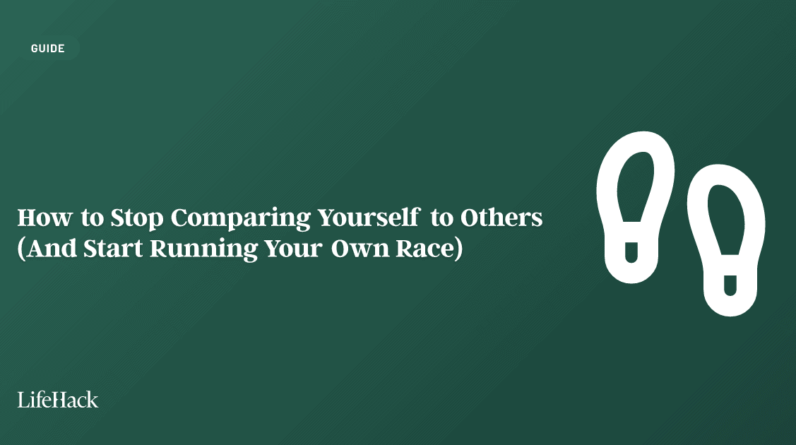
Have you ever sat and listened to a family member or friend share with you their heartache?
Did you feel their grief and/or cry along with them?
If so, then you’ve experienced empathy.
In a world where each person suffers at one time or another, we could all use more empathy.
In this article, we’ll discuss what empathy is, as well as how you can become more empathetic.
What is Empathy?
Empathy is the ability to put yourself in someone else’s shoes and try to understand and feel what they are feeling.
It is the capacity to really feel emotion-wise what that other person is feeling.
It’s not just people you can empathize with either. Empathy can also be felt for animals and fictional characters, such as when you read a book.
Empathy is an important characteristic for establishing healthy and fulfilling relationships. We can begin to form empathy as a young child, and can build upon that and develop a greater degree as we grow.
In a society where there is a lot of grief and suffering, we truly do need a greater level of empathy in every age group.
Is Empathy the Same as Sympathy?
No, empathy is not the same thing as sympathy.
When you sympathize with someone, you don’t necessarily feel what they are feeling. You may be concerned and care about them, but you’re not experiencing those feelings coursing through your body.
Maybe you’ve gone through something similar, so you can relate to their pain. Or, to put yourself in their shoes might be incredibly challenging for you because it might feel like it’s too much to handle.
So, you keep your emotions at a distance.
How can you tell if you’re empathetic?
- You are an excellent listener.
- People tell you that you’re easy to talk to.
- You can pick up on how others are feeling.
- When tragic events occur, it affects you deeply.
- You cry over moving commercials, shows, videos, etc.
- You really do care about how others feel.
- You may become drained around crowds.
- You take the time to sit and listen to those in pain.
The Importance of Developing Empathy
People simply want to be seen and heard, no matter how their feeling or what they’re going through.
Haven’t you ever been struggling with something and just wanted to feel seen and validated?
You wanted to know that someone really cared and could listen to you without having to feel like they had to fix you.
Being empathetic is more than just saying, “I’m sorry you’re feeling that way.” Though it is nice to acknowledge someone in their suffering, showing empathy goes beyond just giving a cliché statement and going on about your life.
- You take the time and sit with that person and put yourself in their shoes.
- You allow yourself to enter their emotional space.
- And, you hold that space for them as support.
- You let them be however they are in those moments, without judgment.
- You know your role is simply offer a good listening ear and support.
An Example of Being Empathetic
For example, let’s say your coworker’s husband just left her. She comes to you crying hysterically because she’s petrified of trying to raise her daughter alone. She’s grieving the loss of this marriage.
Intense emotions like this sometimes sets people on edge, as they don’t know how to handle it. They don’t know how to be there for someone in their pain. They might say something like, “Well, he doesn’t know what he’s missing” or “Don’t worry. You’ll be just fine.”
While those are nice sentiments, that’s not showing empathy.
An empathetic response may look something like this:
- You stop whatever you’re doing, and look them in the eye.
- You lean toward them slightly, and if it’s appropriate, you put your arm around them as they cry.
- You listen to them and do not interrupt. You don’t try to fix them or try to get them to stop crying.
- You simply listen attentively and put yourself in their shoes.
- How would you feel if your spouse left you as a single parent?
- How would you want someone to respond to you?
An empathetic response maybe something like:
“I am really sorry that you are having to go through this. This must feel so heavy for you. I am here to support you in any way that you need.”
This response doesn’t invalidate their feelings and rather, empathizes with them.
It shows compassion and offers them whatever kind of support they may need. It allows you to connect with them at a deeper, more intimate level. They won’t feel so alone, they know they can be in pain and you’re not going to judge them.
What If I Don’t Feel Empathy for Others?
People show empathy at different levels.
Research states that about 20% of the population is wired to be more empathetic simply by nature.
Some people do not develop strong empathy skills due to something in childhood. They may have closed their heart because they suffered chronic trauma or abuse.
They may not be that in touch with their own emotions, so it’s even more challenging for them to share that emotional space with someone else.
The good news is that you can grow your empathy skills. As you get more in touch with your own emotional landscape, healing what may need healed, you will become more empathetic.
The following are some ways you can increase your empathy level:
5 Tips on How to Increase Empathy
1. Evaluate your level of empathy.
Take a few minutes and evaluate how empathetic you currently are.
When people come to you in pain, how do you show up for them?
- Do you listen attentively?
- Do you feel their emotions as they share?
- Are you able to put yourself in their shoes?
- Do you genuinely feel some compassion for them?
- Or do you become uncomfortable and try to get out of there as fast as possible?
By becoming aware of how empathetic you are, you can become more attuned to your feelings when these situations occur in your life.
When someone comes to you struggling, you can consciously think to yourself,
“I intend to be empathetic here. I will listen attentively and allow myself to feel what they are feeling. I know this may bring them some comfort.”
Make this a practice in your life. Not only will you be helping others, but you’ll feel much better about yourself.
2. Learn to be fully present with others.
People want to be seen and heard, especially when they’re struggling with pain.
The next time someone comes to you in some emotional distress, be fully present. Even if you’re a bit uncomfortable, simply listen to them and hold that space for them to share and be however they are in that moment.
If they’re crying hysterically, let them cry it out for a moment.
- Don’t try to fix them or let your mind wander and start thinking about other things.
- Be that sacred space for them.
It’s likely they’re not wanting you to fix them.
Moreso, they just want an attentive ear and somebody to be fully present with them and their pain.
3. Look people in the eyes.
You can tell a lot about someone by looking them in the eyes.
Practice making eye contact with people as you go about your days. If someone shares something about their life, maintain eye contact momentarily.
Let them know that you see them. They are not alone, and that you genuinely care about their well-being.
4. Practice regular meditation.
Research shows that those who regularly meditate may be able to modify brain states that actually boost compassion and empathy.
- Take time daily to pause, get silent, and go within.
- Focus on your breath.
- Allow your body to fully relax and be present with yourself.
The practice of meditation can benefit you in a variety of ways, including feeling more empathetic.
5. Give yourself permission to feel.
Allow yourself to feel what others feel when they are struggling.
It’s easy to put a wall up around your heart, because feeling vulnerable can feel scary.
- But when you’re struggling, and you’re sharing your pain with another person, don’t you want them to attentively listen?
- To feel like you’re not alone in your pain?
This is what others want as well.
Empathy: The Bottom Line
Think of empathy as a muscle, and it can become stronger the more that we use it.
If you’re trying to become more empathetic, but find yourself struggling, you may benefit from seeing a counselor.
Not everyone has a great connection between their mind and their heart, and those blockages can be worked through with some insight and guidance.
You could also read some books about empathy, as there are many books that help people tap into that empathetic reservoir that is within each of us.
The key is to make the effort and become more conscious of the fact that you want to show up for people in this way.
The world would be a much happier place if we all kicked up our empathy levels some. At the very least, more people would feel seen, heard, as well as validated.
- Do you consider yourself an empathetic person?
- If so, how do you tend to show empathy toward others?
Editor’s note: This article was originally published Dec 6, 2020 and has been updated to improve reader experience.
Photo by Jack Sparrow







